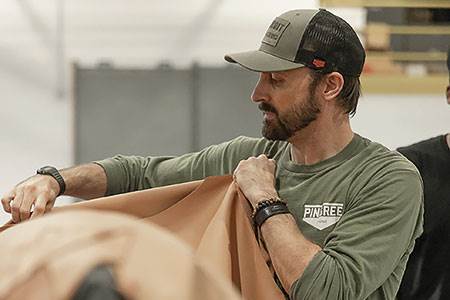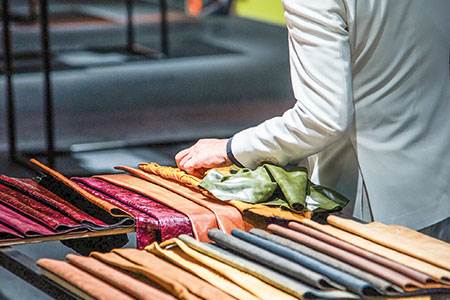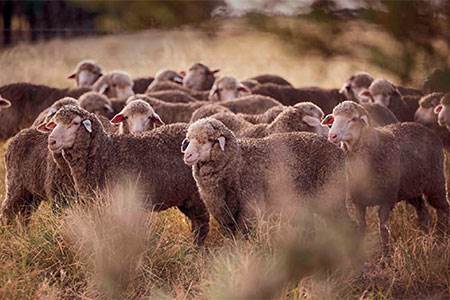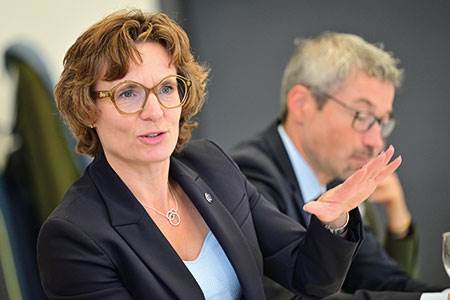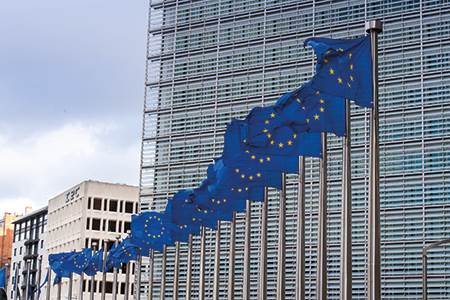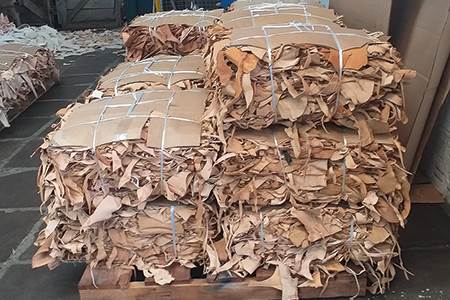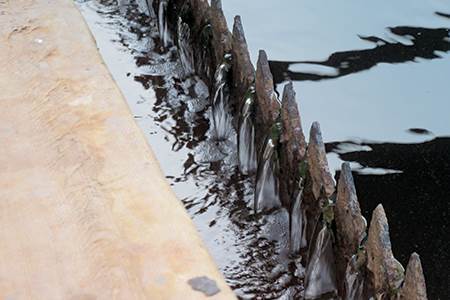World Leather podcast: Series 1, Episode 9 - 22 October 2020
A new edition of the World Leather Podcast is available for leather professionals around the world to listen to. In this episode, we offer an audio version of our recent interview with Tom Schneider, the founder of ISA TanTec. Mr Schneider discusses the impact of covid-19 so far on his company and on the leather industry in general. In the podcast, which is available here, he also gives his opinion of what 2021 is likely to hold. Later in the conversation, Mr Schneider explains in detail why ISA TanTec has decided to launch a new division, Creation of Sustainable Materials (COSM), to prepare alternative materials, made from non-animal natural resources, for brands to use in vegan collections.
World Leather Podcast: Series 1, episode 8 - 02 October 2020
A new edition of the World Leather Podcast is available for leather professionals around the world to listen to. In this episode, published on October 2, 2020, the team analyses in detail the saga, so far, of LVMH’s on-off attempts to acquire New York-based luxury brand Tiffany. In the podcast, which is available here, we offer a summary of the main events since the two companies announced a deal in November 2019 and speculate on whether or not it will ever be completed.
World Leather Podcast: Series 1, episode 7 - 22 August 2020
This episode of the World Leather Podcast was published on August 22, 2020. It is another in our Leather Leaders interview series, this time with Andreas Kindermann. Since 2008, Andreas Kindermann has been chief executive of Wollsdorf Leather, a specialist producer of leather for steering-wheels, furniture upholstery and aircraft interiors, with its headquarters in Austria. He steered the company back to growth following the global financial crisis of 2007-2008, opened sewing and cutting plants in China and Croatia, established or redeveloped sales offices in Hong Kong, Uruguay and the US, and, in 2019, established a new tannery and leather cutting facility in Mexico. He led Wollsdorf to victory in the Global Tannery of the Year award in 2014.
He was elected president of COTANCE, the...
World Leather Podcast: Series 1, episode 6 - 06 July 2020
In this episode of the podcast, the World Leather team discusses a new sustainability strategy, Sustainable By Nature, that Scottish Leather Group (SLG) formally announced recently. SLG’s announcement, including the six commitments it made public at that time, and the group’s history of being a sustainability pioneer in the global leather industry.
World Leather Podcast: Series 1, episode 5 - 08 June 2020
We published this episode of the World Leather Podcast on June 8, 2020. This episode is another in our Leather Leaders interview series, this time with Jon Clark, chief executive of PrimeAsia. Tanning group PrimeAsia has leather manufacturing facilities in Huangjiang in China and in Ba Ria-Vung Tau in Vietnam. These tanneries have a combined production capacity of around 11 million square-feet of finished lifestyle and athletic leather per year, which the group supplies to dozens of global footwear brands. In this interview, chief executive, Jon Clark, offers some reflections on the effects of the covid-19 pandemic on PrimeAsia’s operations and on the wider leather industry.
World Leather Podcast: Series 1, episode 4 - 29 April 2020
This episode was published on April 29, 2020.This time, the podcast is devoted to the second in our series of Leather Leaders interviews. In late 2019, the president of Portugal’s main leather industry body, APIC, Nuno Carvalho, published an article in the main national newspaper strenuously defending the industry against unfair criticism over environmental standards at its main production centre, Alcanena. He felt the days of simply waiting for troubles to pass over had to come to an end. Mr Carvalho discusses the circumstances that led to this action.
World Leather Podcast: Series 1, episode 3 - 15 March 2020
This episode of the World Leather Podcast was published on March 15, 2020.This discussion among members of the World Leather team examines the impacts that the coronavirus or covid-19 outbreak had had on the global leather industry by mid-March 2020.
World Leather Podcast: Series 1, episode 2 - 31 January 2020
This episode of the World Leather Podcast was published on January 31, 2020. It set out to examine how changes in meat consumption will affect the leather sector. Subjects discussed include reflections on ‘Veganuary’ and meat substitutes and how they could affect leather production in the years ahead.
Subjects discussed include reflections on ‘Veganuary’ and meat substitutes and how they could affect leather production in the years ahead.
World Leather launches new Leather Leaders series - 17 January 2020
To mark the start of this new decade, World Leather is launching a series of in-depth interviews with leading figures in the tanning industry to ask for their perspective on the recent history of the global leather sector and their impressions of what the 2020s might hold.
The series, which has the name Leather Leaders, launches in the December 2019-January 2020 issue of the magazine.
In the first of our Leather Leaders interviews, we talk to honorary president of the Scottish Leather Group, Jonathan Muirhead.
He speaks at length about the positive way in which most of the leather industry responded during the last decade when demands intensified for it to become more sustainable. “There is still much to do, but I think the leather industry can hold its head up high,” ...
World Leather podcast: Series 2, Episode 1 - 11 February 2021
In the latest in our Leather Leaders interview series, Dr Luis Zugno, president of IULTCS, talks to World Leather about his 45 years in the industry, his reflections on a turbulent first year at the head of the leather chemists’ and technologists’ body and his hopes for the 2021 and beyond. Asked about areas in which he would like to see innovation in the future, Dr Zugno delivers a detailed list of ideas that, taken together, constitute a real programme for change that leather manufacturers and their chemicals and technology suppliers can, and must, address together.







